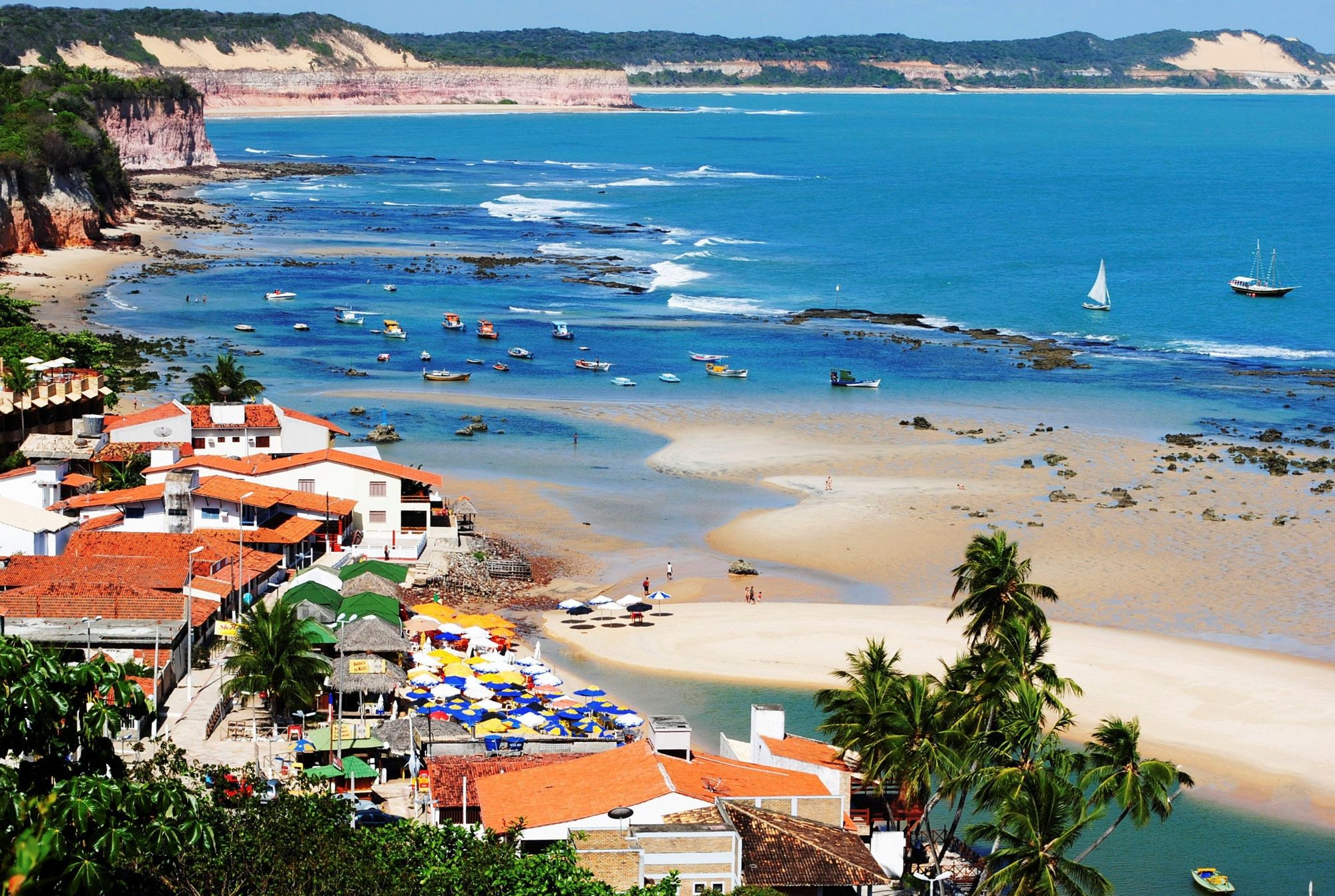A company famous for launching digital nomad villages in Portuguese-speaking nations is taking its 'nomad village' concept to South America's largest country in November.
NomadX—the company that built communities in Madeira, Lisbon, Caparica (Portugal), and Cabo Verde—is bringing its expertise to northeastern Brazil.
The town of Pipa, Brazil, in the northeast of Brazil, was a small fishing village as recently as the 1970s. Since then, it has become a backpackers' paradise and a destination for Brazilians and foreigners alike.

This beach town is just under 90 km from the state capital of Natal and is sunny year-round— with alternating wet and dry seasons typical of the tropics.
NomadX is run by CEO Gonçalo Hall, a digital nomad who has done pioneering work in building out the concept of public-private partnerships to foster digital nomad communities.
But despite the mandate to 'grow digital nomad villages' in international locations, NomadX is not a real estate development company.
Its primary role is to prepare the specific infrastructure needed to support digital nomads and remote workers. This mandate includes coworking spaces, coliving accommodations, the provisioning of fast Wi-Fi, and building out digital forums for the emerging community (like a dedicated Slack group for members of the village, for instance).
Brazil has given Pipa and NomadX the go-ahead to build a digital nomad community for the same reason Madeira and others have done in the past: as a forward-looking attempt to capture economic value from workers who can choose to work anywhere.
Another of history's great global migrations is underway, and local communities can capitalize on it. As hundreds of millions of digital nomads and remote workers realize they can work from anywhere, they will make choices that will bring sweeping changes in travel, society, work, education, family structures, taxation, and more.
In the race to attract a location-independent bloc of consumers, several factors are arguably working against Brazil. Firstly, the country is simply further south and more isolated from thousands of potential visitors.
North Americans tend to choose warm-weather countries accessible via shorter direct flights — Mexico and Costa Rica. For a sunshine-soaked remote workation, Europeans have nearby Mediterranean countries to choose from.
Brazil is also a highly-populated, mostly monolingual nation. Like the USA, it doesn't have the same penetration of second-language learning as other countries.
Few visitors know Portuguese, and few locals know English or Spanish, relative to the millions who can use one of these two languages as a lingua franca throughout multiple countries in other parts of the Americas.
Brazil must also beat an international perception that its urban environments and cities are more dangerous than other countries.
But Brazil has the advantage of being a highly-populated country with millions of domestic workers in cities like Rio de Janeiro, Sao Paulo, and Belo Horizonte, many of whom may be imminently considering a remote work workation to a place like Pipa.
As another plus, the exchange rate from the dollar or euro to the Brazilian real is favorable, having declined considerably in the last ten years.
The pilot will run from November to March. If the organizers of the Pipa initiative can demonstrate an economic impact, they assume they will get a further green light to proceed with a more permanent phase.
NomadX estimated that Pipa might be able to exceed the estimated $30 million in economic impact that Madeira was able to achieve annually with 6,000 registered visitors.
I asked Gonçalo Hall some further questions over Twitter.
Curtis: What is the expected ratio of Brazilian nomads to world nomads going to be in this village?
Gonçalo: Ratio of nomads: We want 50/50 in the first year, but no idea of what will happen as it's our first project in Brazil and South America. It's true that the internal market is huge, but our community is very global, so I think it will be interesting to see what happens.
What is the legal structure for working in Brazil as a foreigner? Are you suggesting people use a nomad visa or just wink-wink, don't ask, don't tell if under 90 days?
The ninety-day tourist visa will be what most nomads will use. The reason for this is that nomad visas [like the new one in Brazil] are not actually targeting nomads but remote workers. The Brazilian nomad visa is not an exception. There's a green area where if you don't work for Brazilian companies, you are actually legal, so we are using that legal frame for this community.
We still need proper nomad visas for 3-6 months, which actually solve the legal grey area of nomad visas.
Why is the village pilot ending in April? What happens after?
All our village projects have a timeframe for ending, as they are tests. When we don't know the [potential] acceptance and success. We need to test, so a pilot program is useful for that.
The continuation of the project is on the government side, if they want to keep supporting the project we are happy to continue, as I believe Pipa is a special place — like Ponta do Sol — our first nomad village. My belief is that we will be successful and the project will continue, but having an end date for the pilot helps us manage the project and expectations.
The first village in Madeira was originally slated from Feb 1st, 2021 to June 30th. But we are still here :)
I noted that Gonçalo, like many digital nomad advocates, makes a clear distinction between the subculture of short-term 'digital nomads' vs.
long-term 'remote workers.
Digital nomads often claim that long-stay remote work visas should not be credibly called 'nomad visas' because they are not flexible enough.
The initiative in Pipa foretells thousands of similar projects that are likely to emerge in the next decade to revitalize economies with remote worker spending.





